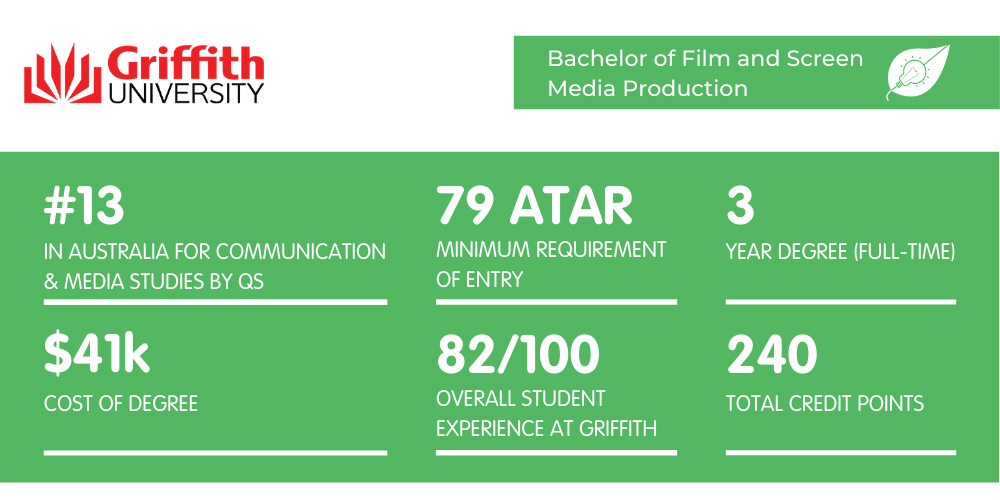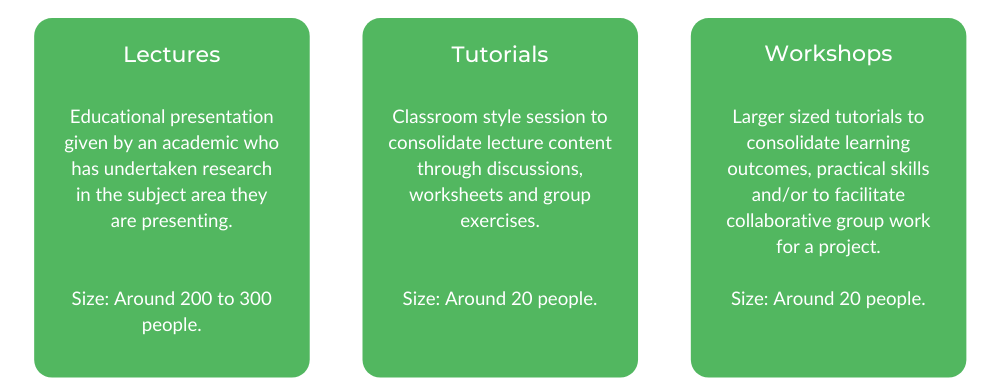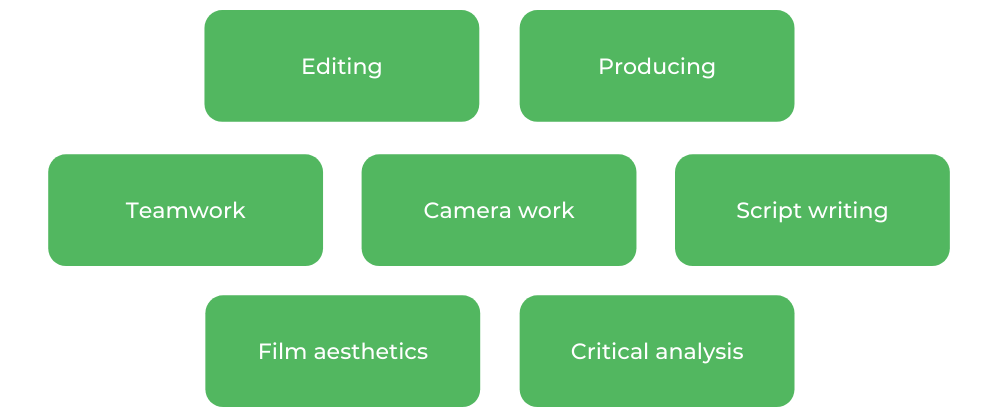
Are you passionate about film and dream of producing stunning content at a professional level? Well at Griffith Film School (which is part of Griffith University in Southport, Queensland), this can be made a reality!
You can study a Bachelor of Film and Screen Media Production to develop all the necessary skills and knowledge. We’ll give you the lowdown on this degree so that you know what to expect.
Read on to find out more!
What is a Bachelor of Film and Screen Media Production at Griffith Film School?
Core Units for this Degree
How to Get into a Bachelor of Film and Screen Media Production at Griffith Film School
What’s the Teaching Format?
What’s the Faculty and Culture Like?
What is a Bachelor of Film and Screen Media Production at Griffith Film School?
Griffith Film School’s Film and Screen Media Production degree is designed for students who have a great interest in film and cinematic experience! You’ll study various formats, including high definition video, television and sound.
You will also get to study tailored electives in editing, producing, cinematography and much more. Ultimately, you will come out of this degree ready to work in the film industry, equipped with both practical and academic knowledge!
Honours
This degree can be studied as a standalone three-year course. However, you may also undertake a fourth honours year in which you will use your study experience to create a major project.
To access this additional year of study, students must have achieved a 5.0 GPA in previous classes. Learn more here!
Who should study this degree?
A Bachelor of Film and Screen Media Production is ideal for people passionate about film, whether you have a great understanding of production, or no experience at all. It will get you connected with people in the industry and will help you to gain the experience and skills employers look for.
Career Paths
Because this degree is fairly broad in nature, students will be equipped to take on many different areas in the world of film. You may move into:
-
- Production
- Editing
- Advertising and commercials
- Youtube and online work
- Freelance contracting
- Private client work
In regards to industry choice, students may choose to work in corporate entertainment, such as the production of television series.
Other alumni have moved into advertising work, filming commercials and fulfilling briefs for companies. In this digitised era, there is also a lot of scope for online work including high-quality Youtube productions.
You may also find a career in freelance work, where you may take on more artistic and experimental practice for galleries or private clients.
Core Units for this Degree
First Year
In your first year of Film and Screen Media Production, you will learn how to use a camera, edit and gain basic understanding of drama concepts.
One of the core units you’ll be taking is Story and Voice. In this unit, you’ll be introduced to the concepts of narrative and storytelling — working personal tales into film.
Other subjects you’ll study include:
-
- Short Film Project
- Image and Sound
- Post Production and Audience
- Television Studio Production Story and Audience
- Post Production Markets
- Television Project
Something to keep in mind is that first year subjects can be stressful, but are still a lot of fun. If you dedicate your time to studying, you will definitely learn a lot!
Second Year
This year of study is a bit of a mixed bag — some subjects can be stressful while others are a bit more relaxed. Just remember that second year subjects will not be as easy as first year.
An interesting unit you’ll get to take is Documentary Production. This unit explores the historical and conceptual foundations of documentary making, while pushing students’ practical skills.
The rest of the units that you’ll learn include:
-
- Episodic Content
- Asia Pacific Film
- Industry Engagement
- Interactive Storytelling
Third Year
In your final year, you’ll be taking on Production Project — not once, but twice! These major projects involve a full-size, industry crew in creating professional videos.
You’ll also take on the unit Screen Entrepreneurship which is all about film and screen industry practice.
Specialisations and Internships
This degree does not offer specific specialisations. However, students may use their free electives to build a deeper understanding of production themes.
Students may choose to study extra subjects about sound design, image and editing.
This degree also offers dedicated work placement time if chosen as an elective. Within such an elective, students can experience what it’s like within a professional screen industry setting.
Students can undertake placements at any approved time of the year, however assessments related to placements must be undertaken during Trimester 1 or 2. You can learn more about this process here.
How to Get into a Bachelor of Film and Screen Media Production at Griffith Film School
Currently, this degree has a 79 minimum ATAR cut off.
It also requires students to have completed English, English as an Additional Language, Literature, or English and Literature Extension. If you do not meet this requirement, you can undertake a bridging course.
Alternate Pathways
Students who have completed a TAFE Diploma or VET course in an Entertainment-related field may also be eligible for this degree.
Scholarships
There are several scholarships available for this degree, including the Sir Samuel Griffith Scholarships for those who achieve an ATAR over 95.50. Find the full list here.
What’s the Teaching Format?
The Bachelor of Film and Screen Media Production, like the rest of Griffith Uni, works across trimesters. However the third trimester is non-compulsory and is designed to help you get ahead on your study.
Students typically study four subjects within each of the two main trimesters. These subjects are usually worth 10 credit points each (some larger subjects are 20 credit points) and vary between theoretical components and practical projects.
Within second and third year, subjects become increasingly hands-on. In third year particularly, students make their own graduate film which becomes part of their professional portfolio.
Studying this degree means you may find yourself on campus for 15-30 hours per week in order to attend your lectures, tutorials and workshops.
Class Structure

Lectures
Lectures generally run for 45 minutes to 1.5 hours and are optional. Students gain an understanding of the theoretical concepts associated with film.
They also learn about the history and context of film-making. These subjects are available and attended by 200 to 300 students, however numbers vary each week.
Tutorials
In tutorials, students explore more about the theoretical aspects of filmmaking. It is an opportunity in a smaller class of around 20 to ask questions about lecture content.
Students also engage more deeply with the different theories behind film.
Workshops
Workshops give students the time to explore practical components of their degree and work in groups. In particular, students learn how to use industry equipment including large cameras.
These workshops are about 20 people in size.
What are the assessments like?
Assessments in this degree can often be time-consuming and stressful. This degree is largely project (or assignment) based, with minimal exams.
Students often write and produce films which they are assessed on and then keep for personal and portfolio use.
Because this degree is so group-oriented, the calibre and enjoyment of assessments often hinges on your team.
“If you’re working with the right people… You enjoy the practical ones.” — Olivia, Bachelor of Film and Screen Media Production II at Griffith University
Skills That You Refine and Learn

“Camera experience, directing, editing, producing, lighting, production design [are all part of this degree].” — Olivia
Griffith also places emphasis on students gaining key understanding into different styles of film and film history. As students engage with genres such as Asian Film, Documentary Production and cross-degree electives, they become lateral thinkers with increased appreciation for the world.
Students are given exposure to national and international artists, ensuring they develop professional skills beyond an academic setting.
What’s the Faculty and Culture Like?
Griffith Film School is the largest ‘school of its kind’ in Australia. Students are subject to artistic rigour and various teaching styles.
However, the cohort size also gives students the opportunity to work with many different people. Each year has roughly 300 to 400 students enrolled.

Griffith Film School boasts several notable staff members. Professor Herman van Eyken, the Director of Griffith Film School, has directed over 190 films and is of international critical acclaim. Dr Peter Hegedus, Deputy Director of Research and Engagement has been shortlisted for an Academy Award in documentary making.
By studying a Bachelor of Film and Screen Media Production at Griffith, you will be amongst teachers who take their craft seriously.
Griffith Screen Society
The Griffith Screen Society is a student-run group that aims to enhance the study of film students at Griffith uni. The Society organises workshops with professionals and mentors, and regularly runs social events for its members!
Accessibility and Mentoring
Griffith Uni has a program for disability and accessibility. Services include arrangement of alternate exam conditions, captioning or transcribing work, access to assistive technologies and providing Auslan interpreting for Deaf students.
Assistance from this service is free and confidential. As part of this service, Griffith runs the GUMURRII Student Success Unit, which is designed to provide fair opportunity to Aboriginal and Torres Strait Islander students.
The University also hosts the Industry Mentoring Program, which connects students with professionals in Queensland and occasionally beyond. Mentors help students to track their process, come up with innovative ideas and find their place in the professional world!
Lucinda Garbutt-Young hopes to one day be writing for a big-shot newspaper… or maybe just for a friendly magazine in the arts sector. Right now, she is enjoying studying a Bachelor of Public Communication (Public Relations and Journalism) at UTS while she writes on the side. She also loves making coffees for people in her job as a barista, and loves nothing more than a sun shower.


